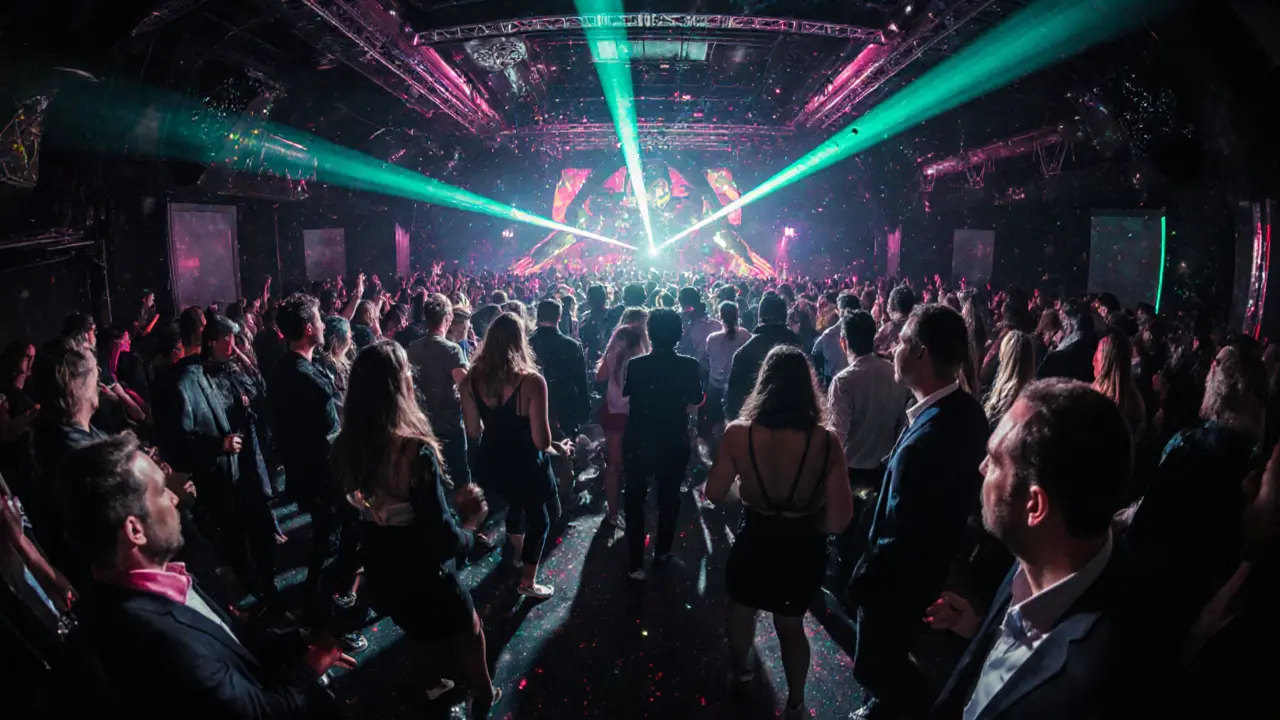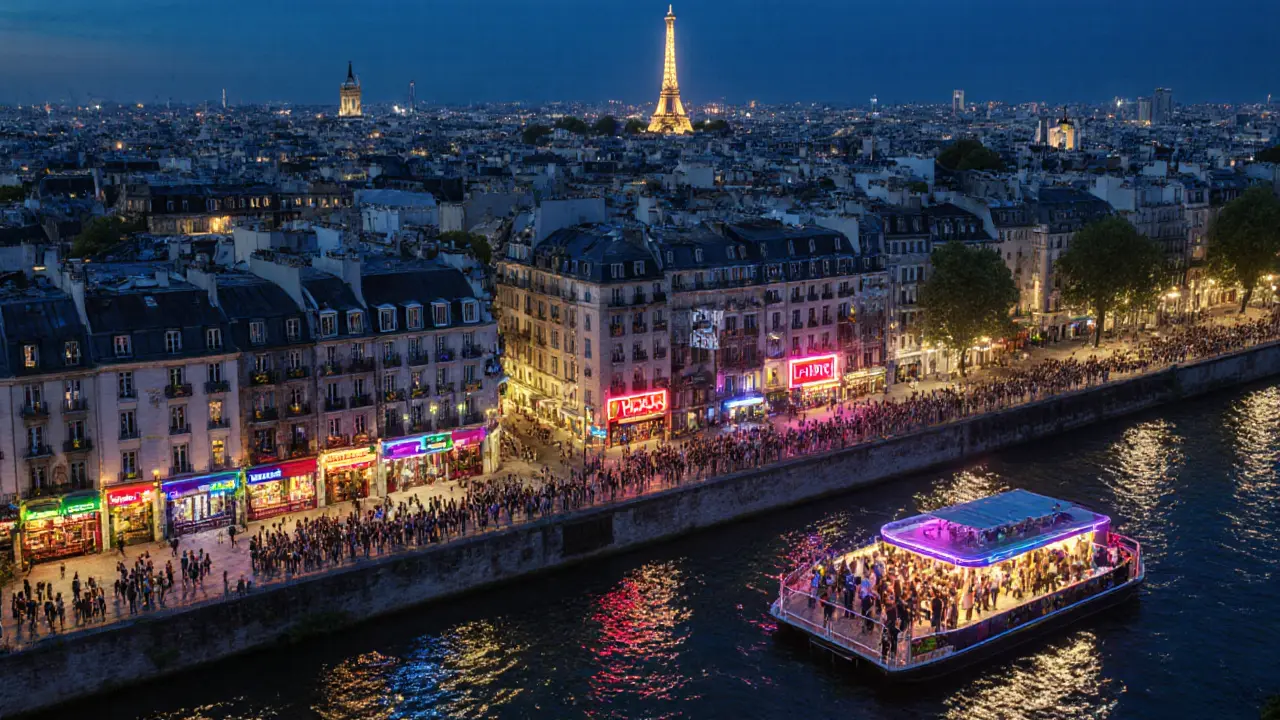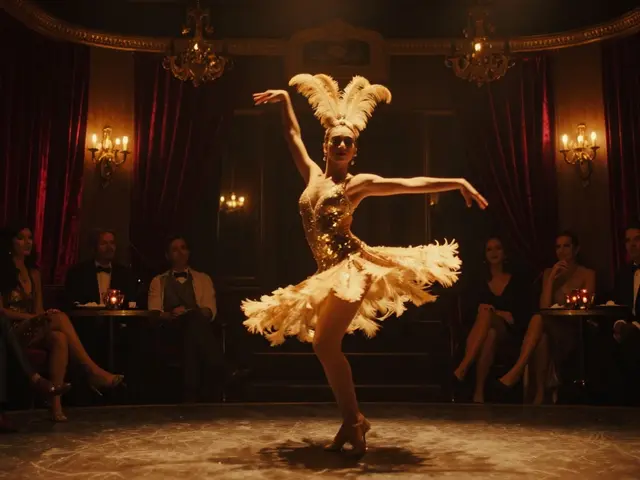If you’re looking to dive into the pulse of Paris clubs, you’ve come to the right place. The City of Light isn’t just famous for its monuments; its after‑dark scene is a global benchmark for music, design, and pure energy. This guide breaks down where to go, what to expect, and how to make the most of a night out in the French capital.
Where the Best Clubs Live: Neighborhood Hotspots
Paris clusters its nightlife around a few iconic districts. Knowing the vibe of each area helps you pick the right venue for your mood.
- Le Marais a historic, LGBTQ‑friendly quarter known for chic bars and underground parties
- Pigalle the bohemian red‑light district, home to gritty venues and live‑music joints
- Bastille a student‑fueled hub with larger spaces and a mix of mainstream DJs
- La Seine Riverbank seasonal open‑air clubs that blend city lights with river breezes
Each neighbourhood offers a different flavor, so plan your night based on the music and atmosphere you crave.
Top Picks by Music Genre
Below are the must‑visit venues, each paired with its signature sound. The first mention of every club includes Schema.org microdata so search engines can spot the key entities.
Rex Club a techno institution in the 2nd arrondissement, famed for its bone‑shaking bass and world‑renowned resident DJs
La Machine du Moulin Rouge offers eclectic programming ranging from house to live‑band performances in a cavernous space beneath the iconic cabaret
Wanderlust situated on a floating platform by the Seine, it mixes electronic beats with sunset views, perfect for chill‑out evenings
Badaboum a boutique venue in the 11th that leans toward indie, electro‑pop and deep‑house, with a speakeasy vibe
Le Syndicat the go‑to spot for French rap, hip‑hop and grime, located in an industrial loft in Pigalle
Showcase a former warehouse turned electronic arena, known for marathon sets and cutting‑edge visuals
What to Expect: Dress Code, Entry Fees, and Opening Hours
| Club | Music Style | Typical Dress Code | Entry Fee (EUR) | Peak Night |
|---|---|---|---|---|
| Rex Club | Techno / House | Smart‑casual, no sneakers | 12-18 | Fridays |
| La Machine du Moulin Rouge | Eclectic (Live, House) | Casual chic | 10-15 | Saturday |
| Wanderlust | Electronic / Chill | Smart‑casual, bring jacket | 8-12 (often free for early sets) | Sunday evenings (sunset) |
| Badaboum | Indie / Deep‑House | Trendy casual | 10-14 | Thursday |
| Le Syndicat | Hip‑Hop / Rap | Urban streetwear | 9-13 | Friday |
| Showcase | EDM / Techno | Club‑wear, no trainers | 12-20 | Saturday (major DJ nights) |
Most clubs open around 11p.m. and stay alive until 3 or 4a.m. during weekends. Door policies can be strict-avoid large bags, wear clean shoes, and be prepared for a short queue.

Getting Around: Metro, Taxis, and Late‑Night Options
The Paris Métro is your fastest friend. Lines 1, 2, 3, 4, and 9 intersect near many venues. For example, Rex Club is a two‑minute walk from Strasbourg‑Saint‑Denis station.
If you’re club‑hopping after midnight, consider a rideshare app like Uber or a licensed taxi; they’re cheaper than ordering a private car during rush hours. Some clubs (Wanderlust, Showcase) also offer shuttle buses from central hubs on event nights.
Keep a small amount of cash for bar tabs-many smaller venues still prefer euros over card payments.
Insider Tips for a Smooth Night Out
- Arrive early on weekends. The best tables and reduced entry fees disappear after 12a.m.
- Check the lineup. Every club posts its DJ roster on Instagram or its official website; a big‑name set often means higher prices but a guaranteed vibe.
- Respect the dress code. A simple rule: no sportswear, trainers, or caps unless the venue explicitly says otherwise.
- Stay hydrated. French clubs can be hot, especially in the summer. Free water stations are common, but you can also ask the bar for a glass.
- Secure your belongings. Use the coat check where available, and keep your phone and wallet in a zip‑pered bag.
- Know the exit routes. In case you need to leave early, familiarize yourself with the nearest metro exits or taxi stands.

Seasonal Events and Specials to Look Out For
Paris’s club calendar spikes around major holidays:
- New Year’s Eve - La Machine and Rex host all‑night marathons with global headliners.
- Fête de la Musique (June21) - Free street performances spill into clubs; Badaboum often offers complimentary entry.
- Saison des Terrasses (July-August) - Outdoor rooftop parties at Wanderlust and other river‑front venues.
- Paris Techno Week (September) - A week‑long series of techno showcases across Rex, Showcase, and underground spaces.
Subscribe to each club’s newsletter or follow their social accounts to snag early‑bird tickets and avoid sold‑out disappointments.
Frequently Asked Questions
What’s the best age to go clubbing in Paris?
You must be 18years old to enter most venues, but many clubs prefer patrons who are 21 or older because they tend to have a more relaxed vibe and can handle the late‑night schedule.
Do Paris clubs have a dress code for women?
Yes, most clubs expect smart‑casual attire. High heels aren’t mandatory, but a polished look (dress, nice top, sleek trousers) works well. Avoid sportswear and overly casual sneakers.
Can I buy tickets at the door?
Many clubs sell tickets at the door, but prices are usually higher and lines longer. It’s safer to pre‑book via the club’s website or a reputable ticket platform.
Is it safe to walk home after a night out?
Paris is generally safe, especially in central districts. Use well‑lit metro stations or approved rideshares. Keep an eye on your drink and travel in groups when possible.
Do clubs offer non‑alcoholic drinks?
Yes, most venues have a selection of soft drinks, sparkling water, and mocktails. Some clubs even feature specialty non‑alcoholic cocktails for those who prefer to stay sober.
What’s the typical cost for a bottle service?
Bottle service starts around €150 for a basic spirit at clubs like Badaboum and can exceed €500 at high‑profile venues like Rex Club during special events. Prices include mixers and a reserved table.







Sure, the guide lists the obvious hotspots, but if you’re truly hunting for the underground vibe, skip the tourist‑packed Rex and head to the tiny warehouse in the 19th arrondissement. They’ll serve you a night that even locals brag about.
They don’t want you to know the clubs are actually front‑ends for a secret network that funnels data to the elite they say it’s just music but the lights are coded signals for surveillance and the drinks are laced with tracking nanotech
Wow, this guide is a treasure trove! From the sleek vibe of Rex to the river‑side sunsets at Wanderlust, every venue feels like a chapter in a night‑time adventure. I love how you broke down dress codes and transport tips – it removes the guesswork and lets us just focus on dancing. For anyone nervous about their first Paris club night, this is the perfect roadmap. Keep the awesome content coming!
🤔 You’ve painted a rosy picture but remember the crowds can be overwhelming – always have an exit plan! 🌐
The guide suffers from a chronic lack of critical rigor, conflating brand‑centric hype with authentic cultural experience.
First, the entry fee matrix is presented without any cost‑benefit analysis, ignoring the opportunity cost of overpriced bottle service.
Second, the dress‑code recommendations are overly prescriptive, embodying a neoliberal aesthetic conformity that marginalizes subcultural expressions.
Third, the geographic clustering overlooks micro‑scenes in the 18th arrondissement that operate on a cash‑only model, alienating fiscally conscious patrons.
Moreover, the discussion of transportation omits the impact of late‑night strikes on the Metro, which can cascade into safety concerns.
The mention of “smart‑casual” for Rex is vague; does “smart” include designer sneakers or merely a blazer?
Additionally, the guide fails to address accessibility for disabled club‑goers, a glaring oversight in the context of French equality laws.
From an operational perspective, the recommendation to arrive early conflicts with the reality of queue dynamics on peak nights, where line length is a function of headline DJ announcements.
Financially, the article glosses over the hidden costs of coat checks and premium water service, which can add up to €20 per night.
In terms of music curation, the taxonomy is reductive; techno at Rex is not monolithic and spans multiple sub‑genres that attract distinct audiences.
The guide’s tone suggests a one‑size‑fits‑all approach, ignoring the nuanced preferences of expatriate vs. local crowds.
From a branding standpoint, the emphasis on “Instagram‑worthy” aesthetics fuels a superficial consumption model, detracting from genuine musical appreciation.
Safety protocols are barely mentioned; no guidance on emergency exits or staff training is provided.
Finally, the lack of comparative analysis between ticket pre‑booking platforms leaves readers vulnerable to price gouging.
Overall, while the guide is visually appealing, its analytical depth is insufficient for the discerning nightlife connoisseur.
Parisian nightclubs are more than just venues; they’re micro‑cosms of the city’s ever‑shifting identity 🌙. When you step onto the dance floor, you’re participating in a transient ritual that blurs the line between the individual and the collective. Think of each beat as a philosophical question: are we dancing to escape reality or to confront it? 🎶
Great work putting this all together – really helpful for anyone planning a night out. Keep the practical tips coming, they make a big difference.
Ellie you’re right the guide misses a lot of nuance but the core info still helps newbies.
The overview is concise and useful.
I appreciate the balanced tone – the guide covers both the fun and the practical side without sounding pushy.